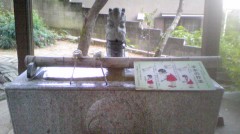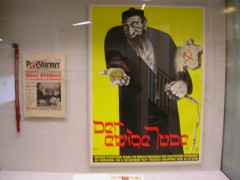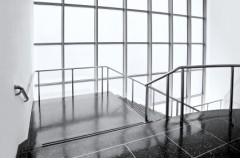31 March 2015
Book: Germans living in Japan during the war time
I recently bought and read a very interesting book on Germans living in Japan during 1930's and 40's, when Japan was in war with China and the USA. The Japanese title is "Senjikano-Doitsujintachi." It illustrates very unique history between Japan and Deutchland.
There were estimated over 3000 Germans living in Japan in that period. That is as much as number of Germans living in Japan now.
During that time Japan was allied with Nazi-Germany. But the German law did not apply. So Jews could live safely in Japan. Not only Jews but exiles did like a former judge who convicted Hitler in 1920's. Other European nations were too close to Nazi-Germany so anti-Nazi people escaped to Japan crossing the Russia.
For them, Japan was like a paradise. Japanese respect Germans because Germany was considered a civilized nation that Japan should model after and was indeed the most important ally for Japan.
Nazi influence was already there. Nazis established a branch in Japan, early 1930's. However, in order to arrest anti-Nazi German citizen, they needed to ask Japanese police to do that. The Japanese at that time did not get along with Nazi ideology, expecially anti-Jew stuff.
Japan and Nazi-Germany made a Cultural agreement that bans using Jew-related materials in education. But even in 1940's Heinrich Heine poems were taught in Japanese colleges. No Japanese could not see the difference between Jews and non-Jews.
The wife of Foreign minister of Japan at that time was Jewish German. Japan was reluctant to corporate with Nazis in terms of oppression on Jews.
Not only Jews and anti-Nazi Germans but Germans who had lived in Indonesia which was former Dutch colony came to Japan after they were freed by the Japanese military. Germans in Indonesia were put in internment camp after Germany invaded Netherland. They were welcomed as citizens in an allied nation.
Japanese praised Hitler as a good and powerful allied nation's leader but did not care about details of Nazis policies. The Japanese government at that time corporated with Germany mainly to counter the U.S.
But after Gemany surrendered in May 1945. Their situation was drastically changed. Japanese thought Germany betrayed them. Some were arrested as enemy spies.
I am thinking of writing a fiction novel based on these facts.
Where the story took place is in Karuizawa, Nagano prefecture, highland resort for high-society in 1945. But there were Germans staying to escape from air-raid in ciities.
Some were Jew or anti-Nazi and some are nazi-sympathizers or nazi-officials dispatched from their homeland. They got along with Japanese who welcomed them feeling complicated. Some were very thankful but at the same time not very happy because Japan was allied with Nazis and some thought Japanese were second-class people not being white.
I guess it is going to be very interesting. In order to write a good story, I am now learning Heine's poems. It may be a main topic of the story.
05 January 2011
America's Nazisation
I watched documentary program on America's new movement in relation to 10th anniversary of 911 attack. In New York, there is a big controversy over opening of new Islamic Center located 2 blocks away from Ground Zero. People overlap image of Al Quaida with Islam.
Anti-Islam activist, Pamela Geller was interviewed by a Japanese journalist. She said "It is not a matter of freedom of faith, it is a matter of emotion. Why should we figure them out? It should be defeated."
Sounds scary! After I watched the program on TV, I accessed her blog and emailed her the below question.
"Your response and comments sound like what Nazi people said to Jews.
Aren’t you using the same propaganda as Nazis did? Aren’t you creating another holocaust like Israel is doing on Palestineans?"
Her response as follows,
"The Jews weren't blowing people up, slaughtering thousands in countries across the world, and killing their own if not devout enough.
09 October 2009
Short Novel: Bauhausler, Chapter 6
Please read Introduction first.
Masasko was surprised to know Marcus was Jew. She never thought he was.
"Marcus, have you ever heard of the legend that some of your people also migrated to our country, Japan?"
"What are you talking about?" said Marcus. He seemed to be surprised with her reaction.
"It is a legend that about 2600 years ago, your people arrived in Japan from Israel and settled down there" said Masako delightedly.
"2600 years ago? Is it when 10 of 12 our tribes left Israel because of Assyria's occupation?"
"Interesting thing is that is when our imperial calender year starts. Meaning our majesty is a descendant of Jewish immigrant who established Japan."
Marcus became very curious about her story.
"We have some similarities. Japan's national religious faith, Shinto have some common customs and ceremonies."
"Interesting? What are these?"
"For example, in Japanese Shinto shrine, we wash hands at the entrance. There is a hand-wash place near the entrance. Once you get in, you first have to wash hands and then go to pray."

"Yes. the synagogue has the same thing. To purify before you pray."
"Don't you also use salt for purification?" asked Masako.
"Yes, on Sabath day, we spray salt on bread and eat it. You do the same thing?"
"Well, we don't eat salted bread but use salt to purify ourselves. One of typical things is we spray salt on people who came home back from funeral. The other typical thing is Sumo wrestlers spray salt on the fighting ring before a match. Sumo wrestling is originated from Shinto ceremony."
"Interesting. What else do we have in common?"
"Do you know Ark of Convent, which had been lost for thousands of years?"

"Yes, a famous bible story."
"Actually that exists in Japan as ritural ceremony or you might want to say "Fest"?"
"Festivals?"
"People carry the box which resembles Ark of Convent, called Omikoshi. It has golden birds on the top just like Ark of Convent. People carry it on their shoulders in group just like ancient Israeli did in the ceremony in front of King David. In some region people cross the river carrying the Omikoshi box as though your anscestors passed the Jordan river."
"Wow, suprised to hear. I have never been to Japan but I wish to see such things if I can visit there some day."
Marcus's response pleased her.
"Surely, you should come to Japan some day. We have common ground. We are connected" said Masako making a big smile.
Suddenly Marcus face turned sad and said to her.
"What does it matter if we have a common ground or difference? Connected or not?"
"Did I say anything wrong?" said Masako anxiously.
"No, you didn't say anything wrong. I mean, I just don't care whether we have similarities or differences. We are all humans anyway. We can share love or joy or anything else with one another" said Marcus.
Masako was shocked to see Marcus's response. She did not understand what he meant.
"Are you going to be free this afternoon? We have classes only in the morning. After lunch, I can take you to the place where anyone should have shared the same value. I really want to take you there."
Marcus said making a big smile to her. She thought she should go with him.
Masako was in Marcus's car driving to the city of Dessau, two hours from Berlin. That was where former school building of Bauhaus existed. They, two did not talk each other in the car. Marcus looked very serious and she got nervous by his face.
"There you see, that is where we used to teach and learn" said Marcus and he stopped the car.
She got out of the car and looked at it.

"Wow, this is very nice design" said Masako with surprise. The glass wall building impressed her very much.
"You like that. Yes, because you are Bauhausler and you have the sense of understanding."
Marcus said and was glad with her response.
"Your school is not using this building any more. Why left here?" asked Masako. Actually that was what she had been wondered even before she came to Berlin because at first she heard the school was located in Dessau but soon later it was relocated to Berlin.
"We were kicked out. We had to leave Dessau and restarted in Berlin as private institution."
"What happened? Who kicked out?"
"You know, Bauhaus was at first established in Weimar, 1919 by Walter Gropius. Later the school moved to Dessau in 1925. I joined the school since then. When the school was relocated to Dessau, we were very much welcome by the city councils as revolutionalist. The city gave us aid to construct this new modern style building and our Meister's house. But welcome atmosphere did not last so long."

Marcus looked at her sadly.
"As time passed, growing nationalist movement took on us. The city council was dominated by nationalists." Marcus remembered harsh memories.
"You mean, Nazis?"
"Yeah, they took over the city's politics and banned aid to us. But it was not just by Nazis but many conservative people. They did not like us from the beginning. They called this building "Aquarium" or oriental sense of humor."
"Oriental sense of humor?" Masako was suprised with such furious words.
"Oh, no. I do not mean to offend you. That is how they expressed. They are not familiar with Bauhaus concept. You know, beauty in simplicity, minimalism. They could never understand that."
"Well, that is exactly orientalism, I think. Especially where I come from, we have the concept of seeking beauty in simplified things. It is called "Wabi-Sabi." It is a concept derived from the Buddhist assertion of the Three marks of existence (三法印, sanbōin), specifically impermanence (無常, mujō). We do not like too much decoration in architecture or houses. Finding beauty in simple thing and quiet atmosphere is most important matter in our culture. In that sense our culture might harmonize with Bauhaus" said Masako. She just came up with this wabi-sabi thing not to make him serious any more.
Marcus laughed and said,
"You always surprise me. ha, ha. I am glad to hear that. But to me Bauhaus is a new idea that can be shared with anybody in the world."
"But we are no longer welcome in your society."
"I beleive there should be a time anybody in the world can understand this concept. Whether you are westerner, Asian or anybody else. It benefits all the people in the world. Should be common ground for all of us."
Marcus showed firm commitment as Meister of Bauhaus. Masako found herself attracted to him.
To be continued to Chapter 7.
19:07 Posted in My novel | Permalink | Comments (0) | Tags: israel, judaism







